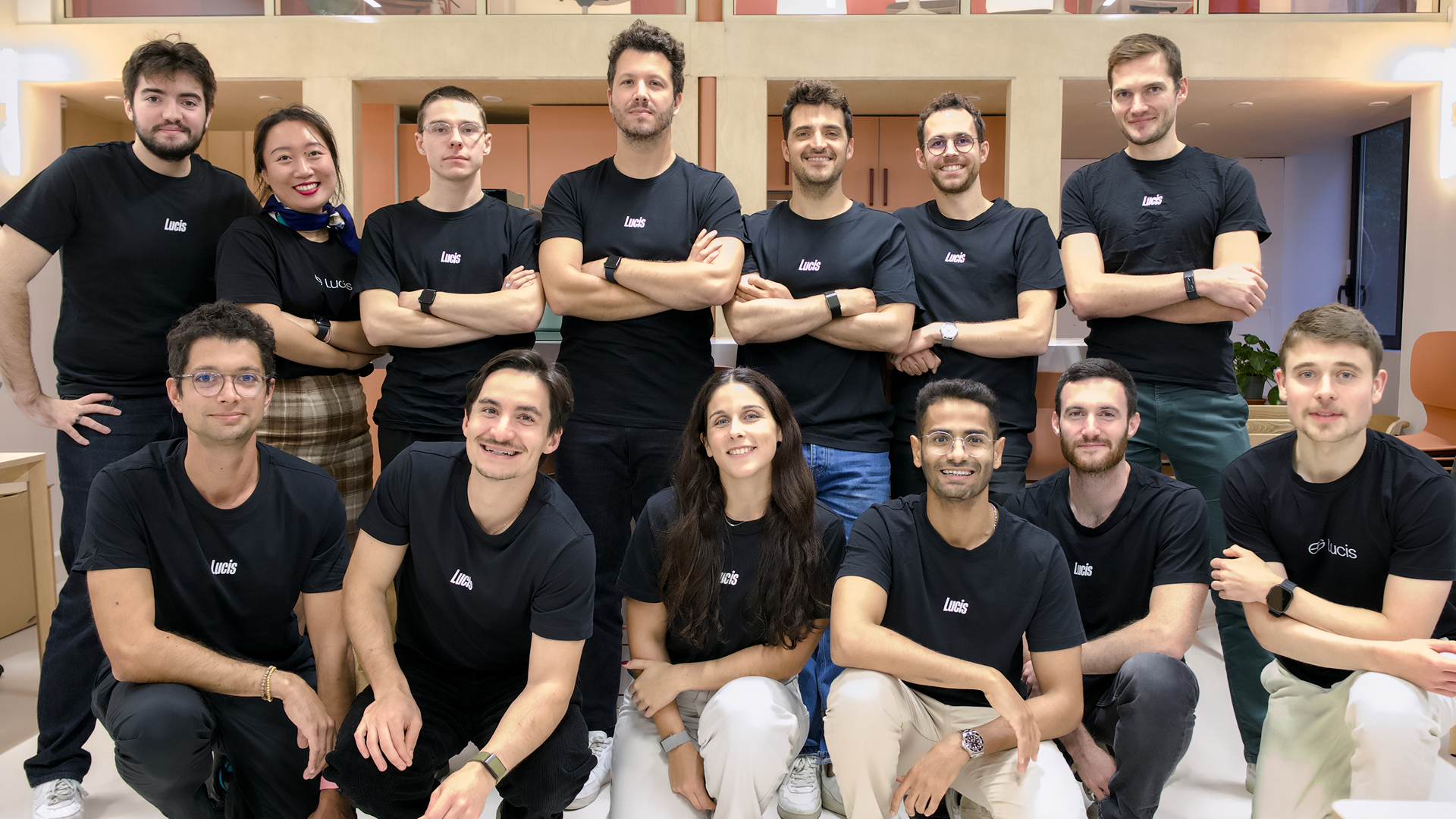Table of contents
Gen Z’s formative years have been spent online, often in distress and in flux. Jaded by the world, news, social media, and reckonings happening all around us. Our mental health before the COVID-19 pandemic was already severe and worsening—the American Psychological Association (APA) reported in 2018 that 27% of Gen Zers said that their mental health was fair or poor.
The COVID-19 pandemic only aggravated the mental health crisis for Gen Z. In 2020, a survey also conducted by the APA found that seven in 10 Gen Zers had experienced common symptoms of depression. And in April 2023, McKinsey reported that one in four Gen Zers globally say that their mental health has declined over the past three years. It’s not surprising then that US Surgeon General Vivek Murthy stated in April 2023 that mental health is “the defining public health crisis of our time.”
Despite our distress, we’re also optimistic. 61% of Gen Zers report feeling hopeful for the future, and we are acutely aware of our mental health needs. While we believe Gen Z feels challenges to our mental well-being more than any generation before us, we are also the most willing to engage with our mental health through any avenue we can find.

But the products and services available to us today are not enough to fulfill our needs and overcome the barriers that have made the mental health crisis this severe. At GC, we believe it’s time for a new generation of mental health tools to emerge—affordable and accessible products that supplement a consumer’s long-term mental health journey with the resources, community, and tools they need for their specific experiences.
Why is Gen Z suffering an acute mental health crisis?
The numbers don’t lie. Gen Z is almost two times as likely to say we experience depression and feelings of hopelessness than other generations. Dr. Kathleen Ethier, head of the CDC’s adolescent and school health program, says it best in a comment made to the New York Times: “Young people are telling us they are in crisis.” But why is this happening? There are a few key factors specific to Gen Z.
Work, school, and money are stressful
Research suggests that before and after the pandemic, money, school, and work are significant drivers of stress and mental health challenges for Gen Z. This isn’t just about homework and classes, either—for example, nearly three in four Gen Zers cite school shootings or the possibility of them occurring as a significant source of stress. Women Gen Zers seem to be carrying the brunt of this stress, with 54% of Gen Z women specifically reporting being stressed all or most of the time, compared to just 39% of Gen Z men.
We’ve grown up online and in darkness
Our core formative experiences have consisted of heavy-hitting news and reckonings, from COVID-19 to mass shootings. 62% of Gen Z cites rising suicide rates as a stressor, and more than one in two Gen Zers feel stressed about widespread sexual harassment and assault reports. These issues have become core stressors—ask any Gen Zer what stresses them out, and you’re likely to hear that these issues in the news are a contributing factor.
Toxic social media
27% of Gen Z report experiencing negative effects on their mental health because of social media. The digital world, social media, and the iPhone have defined our generation’s relationships and mental health like no other, creating new ways for loneliness, anxiety, inadequacy, depression, and more to affect us—think doomscrolling, fear of missing out, cyberbullying, lack of self-esteem, and more. Nearly two in five Gen Zers feel bad about themselves as a result of social media use.
Gen Z is more diverse than previous generations
In 2020, one in four American Gen Zers were Hispanic, 14% were Black, and 6% were Asian. And in 2021, one in five American Gen Z adults identified as LGBTQ+. Cultural tensions in America are taking a toll on these groups, with 59% of young Black Americans, 43% of young Asian Americans, and 37% of young Hispanic Americans reporting that they feel “under attack” “a lot” in America. Nearly half of LGBTQ youth feel under attack “a lot.” It’s incredibly important to make mental health services accessible, especially to people of color, LGBTQ+ individuals, women, and others who have been adversely impacted by the mental health crisis and underserved by our current mental health care system.
Still, Gen Z is optimistic and ready to tackle mental health

Here’s the good news: We are resilient and looking to the future. Ogilvy’s research suggests that the majority of Gen Z is hopeful about the future and believes that at least some of their stressors will alleviate over time. Rather than surrender to an endless cycle of scary headlines and social media-fueled negativity, Gen Zers are obsessed with finding, curating, and creating positivity. A survey conducted by Snap Inc. found that 69% of Gen Z is focused on using apps that feel like positive environments. Many Gen Zers fill their feeds with positivity, happiness, mental health resources, and even their own mental health updates. It’s like a form of therapeutic blogging. We are not shy to speak up about our mental health.
Gen Zers often turn to social media for mental health, well-being, and productivity recommendations, and mental health influencers are everywhere. Social media conversations about mental health are representative of a broader trend: Gen Z’s willingness to talk about mental health openly in a way that removes the stigma and replaces it with a sense of empowerment and potential for personal growth. Today, nearly nine in 10 (87%) Gen Zers feel comfortable talking about mental health with others, as reported by Harmony Healthcare IT. More than 62% believe that mental health is very important to them. Gen Z is more aware of mental health and many use inclusive language around mental health issues and illnesses.
Stigma still exists, especially in the workplace, and it can feel to many in Gen Z that they’re not being heard. But it’s also become easier than ever to connect with other Gen Zers who feel the way we do. This ease of connection, plus our hyper-awareness of the effects of stressors like social media, the news, and the pandemic, has yielded a uniquely Gen Z result: thousands of Gen Zers posting, talking about, and discussing mental health in a way that’s never been seen before.
Unfortunately, the mental health care system is failing Gen Z
Despite the high level of self-awareness and growing conversation around our mental health, Gen Zers are actually 1.6 to 1.8 times more likely to report not seeking treatment for a behavioral-health condition than Millennials. Those who do seek help often resort to emergency healthcare services or even social media, especially during times of crisis, when therapy, which should be common and standard, is often hard for them to access.
In general, Gen Z reports the least satisfaction with their relationships with healthcare providers. About two-thirds of Gen Zers identify as “lower-engaged” healthcare consumers, where respondents report low motivation to improve their health and low comfort when talking with doctors.
The mental health care system is not meeting Gen Z’s expectations and needs. We believe these are some of the reasons why:
- Lack of available providers. 64% of counties in the United States have a shortage of mental health providers, and 56% of US counties lack a psychiatrist altogether. As a result, Gen Z may not be able to access prompt care through normal channels during times of crisis, leaving the emergency room as the only option.
- Affordability. One out of four Gen Zers reported that they could not afford mental health services. Especially because many behavioral health providers do not accept insurance, many Gen Zers have to resort to the ER, crisis services, or behavioral health urgent services instead. When they need services most, Gen Zers often feel like they have no affordable options.
- Stigma within their families and communities. While Gen Z feels more comfortable sharing and discussing mental health as a topic, they may still experience stigma with their parents, on whom they may be reliant for money or transportation, or even their peers in different communities.
- Lack of representation. Gen Z is more diverse than any previous generation. Our mental health challenges are not monolithic, and it can be especially hard for Gen Z to receive the treatment we want and need when we are not represented or understood by the providers we see. Consider that nearly half of all Black, Hispanic, Asian, Native American, and LGBTQ+ individuals have personally experienced mental health challenges, but few received treatment; meanwhile, 82.4% of mental health counselors in 2022 were White.
- Dissatisfaction with the system. Visits to the emergency room don’t leave Gen Z satisfied—instead, we want long-term relationships with providers. 58% of Gen Zers report wanting more personal, long-term relationships with providers who understand them. While telehealth is an important and valuable part of the healthcare system, it does not always meet Gen Z needs, with many reporting that we feel unable to build trust with providers. Gen Z also reports dissatisfaction with digital products (like apps), which we can often find to be impersonal and lacking in their ability to address diverse experiences.
To succeed with Gen Z, new mental health products can add to the healthcare system and contribute to solving these very big problems.
What’s needed to better serve Gen Z?
While many mental health and wellness products have emerged in the last few years, it is clear that a lot of work is still needed to provide the functionality, support, and tools that Gen Z actually needs. We are excited to meet the teams who are building these products and delivering experiences that are more attuned to Gen Z consumers. In particular, we believe that successful mental health products will accomplish the following.
Make mental health care accessible
With so many Gen Zers struggling to access the providers and healthcare they need at any given time, we believe that technology will play an important role as the first step for those navigating mental health challenges. Many Gen Zers note a lack of personalization and trust when it comes to their dissatisfaction with behavioral-health services. In our view, technology-enabled mental health products are uniquely equipped to plug this gap by delivering adaptable and personalized mental wellness experiences, which can inform future behavioral-health services. Companies like GC’s portfolio company Somethings, which connects teens with affordable, trained, and relatable mentors, seek to deliver care and resources when it can otherwise be hard to find.
This accessibility will be driven in large parts by affordability. With so many Gen Zers relying on emergency services for their mental wellness, technology can serve as an important intermediary or initial “point-of-care” that is low-cost and available at the click of a button. These products will not be limited to telehealth. Rather, they will engage Gen Z by sharing relevant resources, facilitating self-care or community, or even just giving people a space to express themselves. They will provide new and affordable additions to the mental healthcare landscape, making it easier than ever for Gen Zers and other consumers to access the resources they need.
Make mental health care inclusive
This accessibility will also be driven by an understanding and appreciation of Gen Z diversity. There is no such thing as a one-size-fits-all mental health approach, especially when it comes to such a diverse generation. Mental health is deeply individual, and we each will have stressors or mental health challenges that are unique to our lived experiences and identities. Products that oversimplify mental wellness will alienate Gen Z, especially those who have been adversely affected by the mental health crisis and underserved by the current state of mental health care—like women, people of color, and people who identify as LGBTQ+.
It is more important than ever to build representative, personalized, and inclusive products rooted in empathy. By prioritizing diversity and supporting all kinds of mental health challenges, the next generation of mental health products has the potential to start to bridge Gen Z’s mental wellness disparity.
Make mental health care long-term
While mental health products will not replace the important role of the provider, they should be built with long-term relationships and trust in mind. In many cases, they will augment the care delivered by mental wellness professionals. As we see it, the next generation of mental health products will be in it for the long haul, helping to supplement provider relationships and deliver much-needed resources, experiences, and tools throughout a consumer’s mental health journey.
We believe these products will curate based on a user’s experiences and adapt and learn from the user over time. They may do this by encouraging self-care behaviors, for example, through journaling, meditation, or more. Long-term, they will become important parts of Gen Z’s day-to-day lives and will sit hand-in-hand with other core facets of the healthcare system.
Make mental health care social
Already, so many Gen Zers turn to social media to find the resources and community they need to navigate their mental health challenges. But, 45% of Gen Z also say that social media makes them feel judged, and 38% report feeling bad about themselves as a result of their social media use. While social media has played an important role in connecting many Gen Zers to the support they need, it is also clear that new solutions need to be built with positivity and inclusivity in mind.
Gen Zers want to be heard and will use the platforms where they feel listened to, welcomed, and connected with like-minded people. Massive communities around mental health exist on social media platforms like TikTok, Reddit, and Discord for a reason. They feel trustworthy because of the shared affinity and experiences Gen Zers find in their friends. They help us feel like we’re not alone.
While we don’t expect that every mental health product will be social-first, we do believe that many of the best product experiences will likely incorporate opt-in social elements and community in some form or another. They will focus on facilitating deep, meaningful interactions. Our portfolio company, Humans Anonymous, which creates a supportive, safe space for communities of people to connect and share via anonymous live audio, is a great example of this. We think the next generation of mental health products will empower Gen Z with social and community features that make it feel like we are part of a community.
Building for the future of mental health care
We believe Gen Z is leading the charge towards a more accessible, relationship-driven, and even social future for mental health. We are excited for the next generation of mental wellness products to emerge for digitally-native consumers and we think successful companies in this space will have an ethos that transcends mental health and have the opportunity to redefine mental wellness for consumers everywhere.
While products should have rigorous and evidence-based clinical underpinnings, we believe the best user experiences won’t feel clinical. They will center around community, long-term and whole-person health, and trust. They will provide access to mental health resources for millions of underserved consumers because they will prioritize diversity and inclusivity.
We are looking to partner with the ambitious and intentional founders who are empowering Gen Z with these products for their mental health journeys. This space is overdue for a transformation, and we are excited about technology’s potential to support and guide consumers and mental health care professionals. If you’re one of these founders, we would love to hear from you!
Further Reading
- Minority Mental Health Worsened During the COVID-19 Pandemic
- Minority Mental Health Polling
- Suicide Rates Have Increased Dramatically Among African Americans
- Women and mental health
- Gen Z’s Mental Health Crisis and Collective Trauma
- Postnatal Depression
Cover Art: Gryffyn M/Unsplash
DISCLAIMER: THIS POST AND THIS WEBSITE DO NOT PROVIDE MEDICAL ADVICE
The information, including but not limited to, text, graphics, images, and other material contained in this post and on this website are for informational purposes only. No material on this site is intended to be a substitute for professional medical advice, diagnosis, or treatment. Always seek the advice of your physician or other qualified healthcare provider with any questions you may have regarding a medical condition or treatment and before undertaking a new health care regimen, and never disregard professional medical advice or delay in seeking it because of something you have read on this website.












